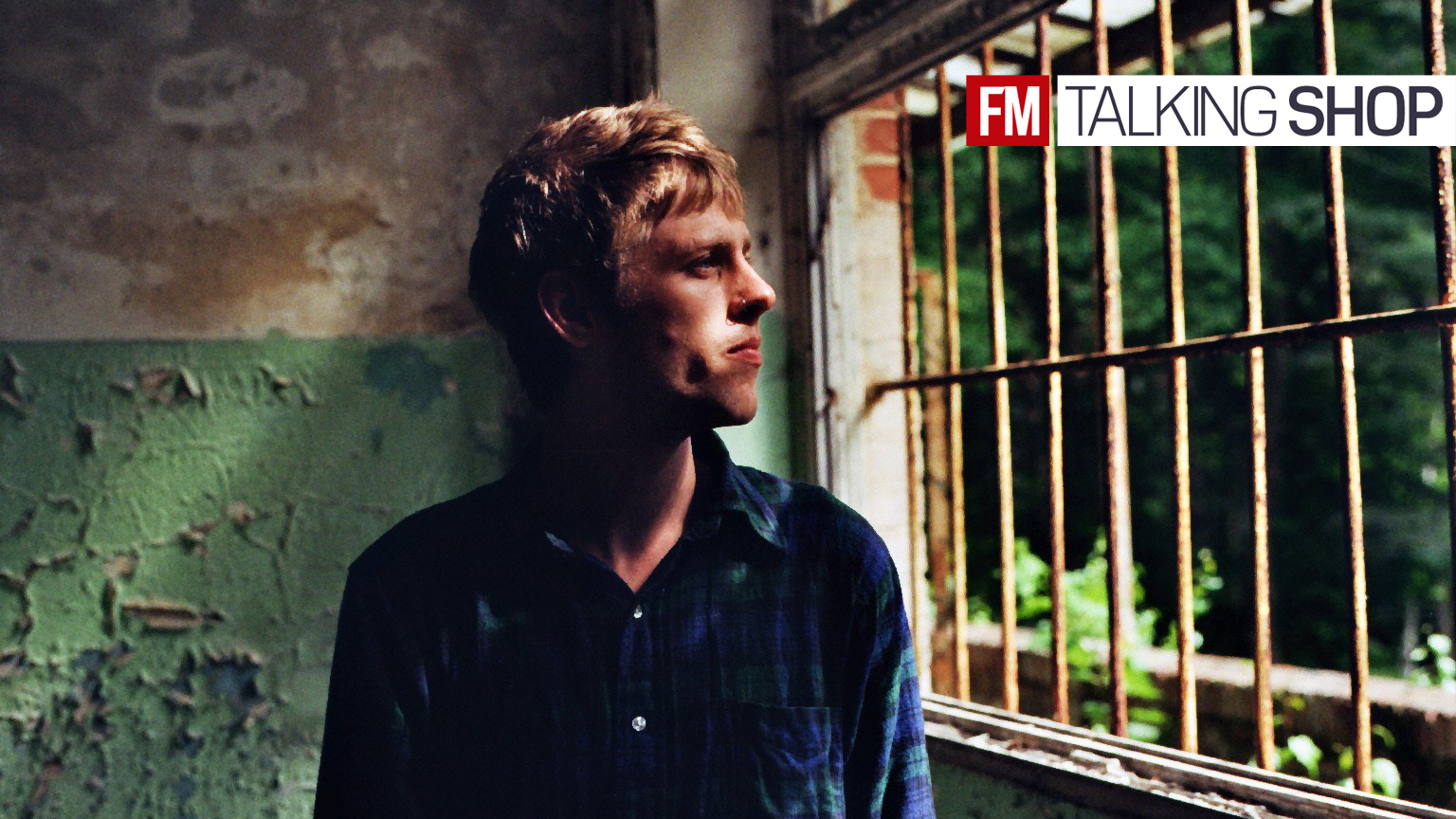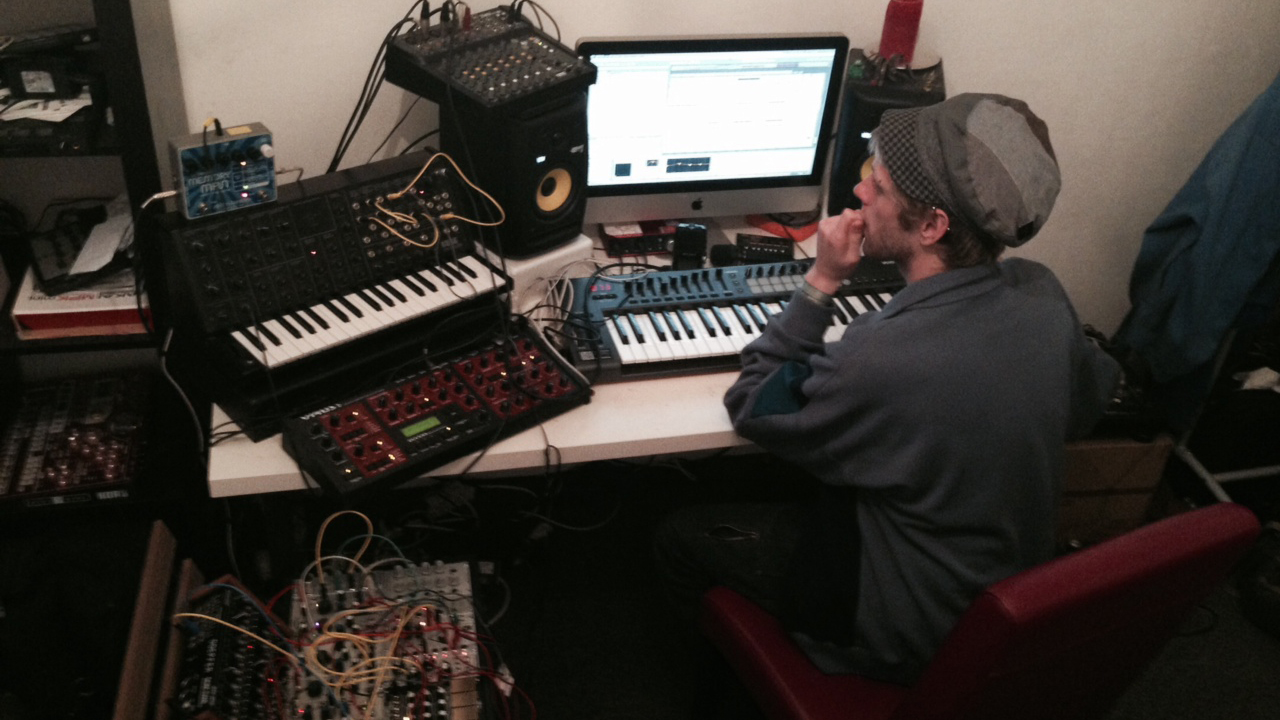Talking Shop: Kasket
The ambient leaning producer talks us through his studio

British producer Charlie Baldwin (aka Kasket) has been creating music since he first got his hands on a copy of Reason at the age of sixteen. The son of a renowned Jazz guitarist, Baldwin, now in his mid-20s, creates emotive, ambient music that fuses unique sythesised sounds with real world textures.
In recent years his music has found a natural home on R&S' ambient-leaning sub-label Apollo, who are due to release his debut album in the near future. With his latest EP, Synthesis, out on the label this week, FM caught up with Kasket to find out more about his studio and production philosophy.
When did you start making music, and how did you first get started?
"My first piece of musical gear I got my hand's on was a SP-404 sampler, I used to use it a lot live when I played drums in many bands. When I was 15 I got my first copy of Reason and starting to make anything and everything, I didn't take it seriously. It was something that was there to get ideas out of my head. But then I started getting into the soundscape area of things, and always wondering, 'How do they make that sound?'
"So when I got into Ableton I just started making whatever I felt like again. Then started making a bit of Hip Hop vibey stuff, Dubstep, anything I felt like really. I was never one for sticking to a genre. But the people who were really inspiring me were people like The Cinematic Orchestra, Massive Attack and Portishead. I loved that moody, slow sound, and also jazzy in some ways. It was something that hit the spot for me."
Tell us about your studio
"At the moment my set is a mixture of everything, I'm trying to go mostly analogue these days. I have a MS-20 which I love, I use it all time for my drones and leads. I also have a modular rack I used a lot for rhythmical patterns, most of it is from Make Noise, I love those guys' modulars, they're crazy, and you can get some amazing unexpected sounds. And my Virus B.
Want all the hottest music and gear news, reviews, deals, features and more, direct to your inbox? Sign up here.
"Monitors, I use are KRK Rokit RP5, I like these monitors as they're pretty honest for sound and at the same time make you work harder. I used to have a pair of NS-10s but I just couldn't get on with them. As for plug-ins, I have used Kontakt a lot for real instruments, as I can't afford to go into a studio and record strings all the time. One day I would like to rent a studio space and have a room to record in.
"I really like working away from the screen when writing, it helps to really listen to what you doing. Looking at a screen and editing all the time can just make you really tired. So I try and work away from the screen at much as I can."

What DAW (or DAWs) do you use, and why did you choose it?
"I'm an Ableton user. I started off using Reason when I first started making music, and I still love how Reason works, but when I was about 17 I started using Ableton for mostly audio reasons. I record mostly audio in my tracks, and Ableton has a great way with going into detail and being able to chop and change and stretch sounds, so you can really get some interesting noises to work with!"
What one piece of gear in your studio could you not do without, and why?
"It's a tie between my MS-20 and my Virus B, I love both of these synths. I use them both religiously. I use them in every tune at the moment, kind of hard to imagine not using them at the moment."
What's the latest addition to your studio?
"My modular system, I guess, is the newest thing at moment, it keeps growing, but my favourite piece of kit from my system is the Make Noise Echophon. I love this delay, sounds like a tape delay but has amazing abilities to get wild, the pitch settings are awesome. You can get some interesting harmonics from it to - plug a guitar or synth into it and you open a world of new ideas."
What dream bit of gear would you love to have in you studio?
"Probably a EMS VCS-3, they're hard to get, but it would be a dream to have one, I love the crazy sounds you can make, and the fact it's always different each time. You see the odd one on eBay, but I don't have that kind of money to throw, one can dream though, aye."
When approaching a new track or project, where do you start?
"It's always random with me. Sometimes I will open a project and leave it on record and play around with my synths and then start chopping and messing around, I find if you always start with the same thing (like drums) it can determine what the tune outline is already, some tracks are better without drums. I find it's good just to go with what headspace you're in."
What are you currently working on?
"At the moment I'm working on my album for Apollo. I'm working with spoken word artists a lot as well, something I've wanted to do for ages, and now its coming together, it's sounding really interesting. I'm also working on film music and teaching at a college in Berlin called DBS Music.
"I can't say too much about the album as I want it to a bit of a secret, and to be honest I don't even know how to explain it myself. But it will be very live and wild."
Kasket's essential music making tips...
Don't over think
"Always go with the flow and follow your ears/head. Sometimes we can go way into depth about sound, it's something we all do and it's good sometimes, but the less you think the more you enjoy yourself and get stuff done, then you can do all the editing and cleaning up at the end. Think of making a tune like painting, it's very similar to me. Get the colours together and the outline, then blend at the end with a fine brush. Sometimes we over think things and you find that you end up working on the same sounds for hours, then getting bored and sick of the tune you're making…"
The things you don't hear... depth
"When I make a tune, I will add layers and layers of sounds, from synth drones to field recordings. I tend to put these very low in the mix, but they're all very important to the overall vibe of a tune. Just because you can't hear them in the tune upfront does not mean they're 'pointless'. Working on depth and atmosphere is what makes a tune sound full of life. It's like how we have the vinyl crackle trend at the moment, even though that sound is very overused I feel it still brings a presence."
Mix quietly (and make your neighbours happy!)
"Mixdowns are a nightmare, you're never happy with them, but one of the things I notice people do when they work on their mixdowns is have the volume up and start going from there. It's good to pump the volume sometimes, but it's always better to mix things at a quiet level. For me it means I can really listen to what's going on. Everything from the high end to the lows. I was always taught that if something comes full and detailed at a quite volume, you have a good mix going."


Future Music is the number one magazine for today's producers. Packed with technique and technology we'll help you make great new music. All-access artist interviews, in-depth gear reviews, essential production tutorials and much more. Every marvellous monthly edition features reliable reviews of the latest and greatest hardware and software technology and techniques, unparalleled advice, in-depth interviews, sensational free samples and so much more to improve the experience and outcome of your music-making.
